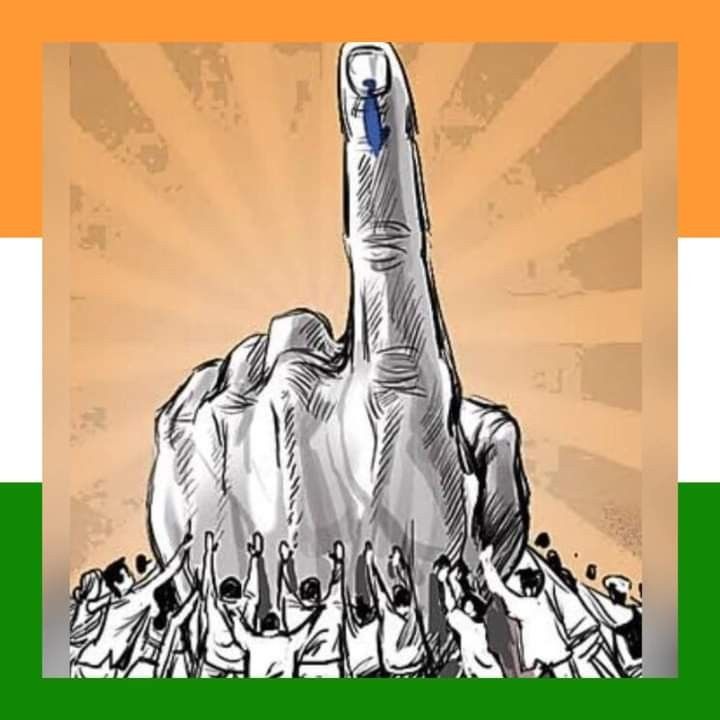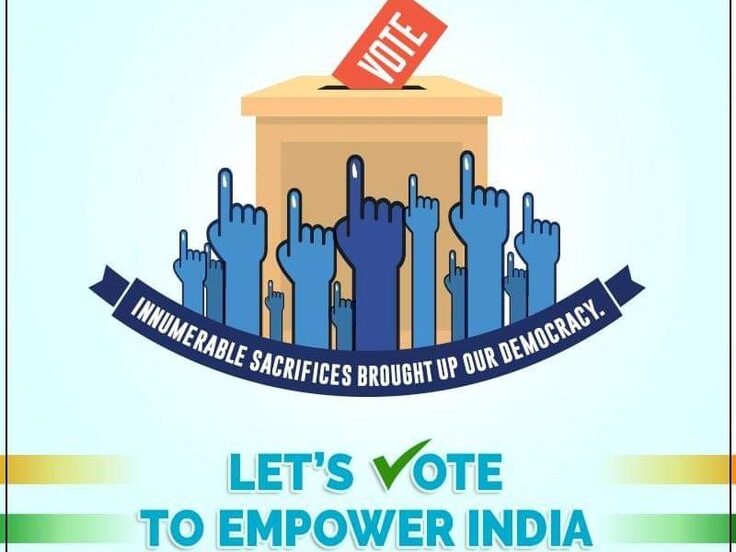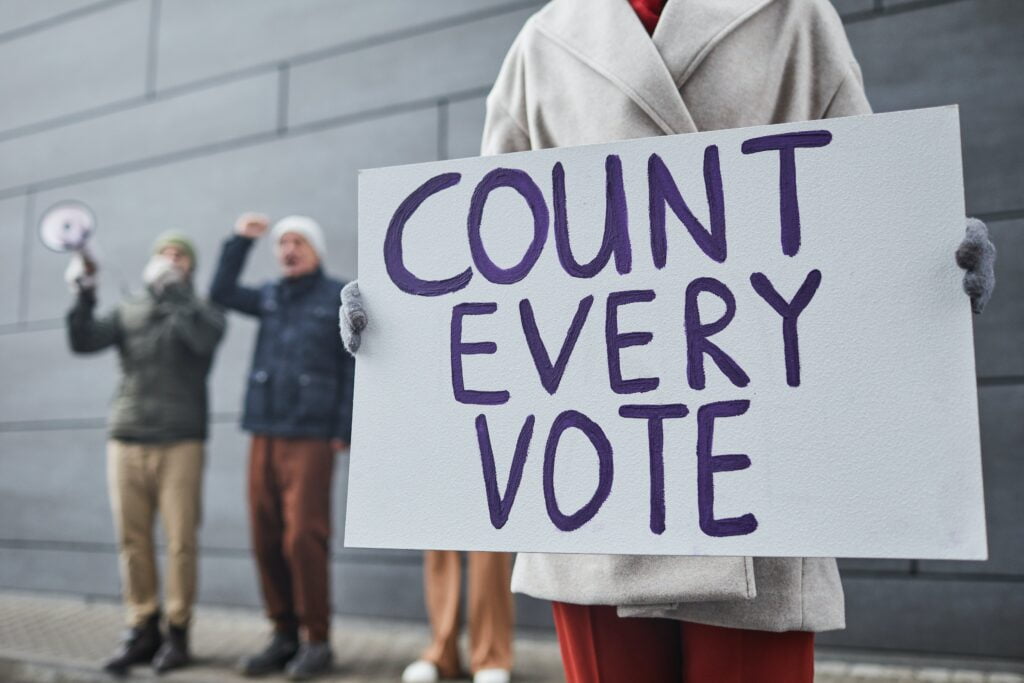
Unlock the power of your vote with our blog on National Voters Day. Dive into a treasure trove of knowledge as we reveal 7 surprising facts that are sure to boost your confidence in the voting process. Discover the insights you need to make informed choices and embrace your role as a catalyst for change. Don’t miss out on the awesomeness—read now to elevate your understanding and ensure your vote counts.
Table of Contents
1. Introduction:
National Voters Day, observed yearly on January 25th, occupies a crucial role in the democratic framework of nations. It acts as a poignant reminder of each citizen’s influential role in molding their country’s future through democratic means. This article delves into the historical roots, core objectives, and lasting impact of National Voters Day. Emphasis is placed on the pivotal role of voter education and participation, recognizing them as catalysts for a robust democratic society. The celebration serves not only as a commemoration but also as a call to action, urging citizens to actively engage in shaping the destiny of their nation through the democratic process.
2. Historical Context: National Voters Day
The Government of India has declared January 25 to be “National Voters’ Day” in an effort to inspire more young people to participate in the political process. Commencing on January 25, 2011, it commemorates the day the Election Commission of India was founded. Emerging from the need to enhance civic awareness, this day commemorates the foundation of the Election Commission of India in 1950.
It signifies a pivotal moment in the democratic fabric, emphasizing the commitment to inclusive participation. Understanding this historical background unveils the continuous struggle for equal representation and the tireless efforts to empower citizens. National Voters Day stands as a testament to the enduring principles that shape the democratic landscape, marking a commitment to fostering informed and responsible citizenship.
You may also like: (1) Shattering Stereotypes: The Role of Women in Empowering Societies, (2)The Positive Impact of Women Empowerment Initiatives: Equality in Action (3) Unleashing the Power: How Women Are Redefining Empowerment, (4) Schemes for Women Empowerment in India: Catalysts for Change
3. Objectives of National Voters Day:
National Voters Day aims to educate citizens about their rights and responsibilities in the electoral process. It serves as a catalyst for encouraging eligible individuals to register as voters, fostering a sense of civic duty and responsibility. The key points are:
- Educating Citizens: National Voters Day aims to educate citizens about their rights and responsibilities in the electoral process, ensuring a well-informed electorate.
- Encouraging Voter Registration: One of its primary objectives is to encourage eligible individuals to register as voters, promoting a sense of civic duty and active participation.
- Fostering Civic Responsibility: The day seeks to instill a sense of civic responsibility, emphasizing the role each citizen plays in shaping the democratic future of the nation.
- Youth Empowerment: National Voters Day focuses on empowering the youth, recognizing their potential as active participants in the democratic process.
- Enhancing Political Awareness: It strives to enhance political awareness by providing information on political processes, parties, and candidates to facilitate informed decision-making.
- Combating Voter Apathy: By addressing voter apathy, National Voters Day aims to rekindle interest and enthusiasm among citizens to actively engage in the electoral process
- Ensuring Inclusivity: The day promotes inclusivity by reaching out to diverse demographics, ensuring that every eligible citizen has access to voter education.
- Promoting Ethical Voting: National Voters Day advocates for ethical voting practices, discouraging malpractices and promoting a fair and transparent electoral system.
- Building a Strong Democratic Foundation: It contributes to the foundational strength of democracy by fostering a culture of responsible voting and active citizenry.
- Creating Long-Term Civic Engagement: National Voters Day aspires to create a long-term impact by instigating continuous civic engagement, nurturing a populace actively involved in the democratic process.
4.Key Initiatives and Programs:

In contemporary times, voter education has taken center stage with innovative programs and initiatives. From interactive workshops to mobile apps facilitating voter registration, technology plays a pivotal role in making the electoral process more accessible and efficient. Few points regarding Key Initiatives and Programs are:
- Voter Education Workshops: Initiating interactive workshops conducted at local levels to educate citizens on the intricacies of the electoral process, including voter registration, casting votes, and understanding the significance of their participation.
- Mobile Apps for Registration: Introducing user-friendly mobile applications that simplify the voter registration process, making it accessible to a broader demographic and ensuring ease of information retrieval related to electoral procedures.
- Online Voter Education Platforms: Establishing comprehensive online platforms dedicated to voter education, providing essential information on voter eligibility, polling locations, and candidates’ profiles, fostering an informed electorate.
- Youth Outreach Programs: Implementing targeted programs specifically designed to engage and educate the youth. These initiatives may include school outreach programs, college campaigns, and youth-centric events to emphasize the role of young voters in shaping the nation’s future.
- Technology-Driven Awareness Campaigns: Leveraging technology to conduct dynamic awareness campaigns. Utilizing social media, websites, and online forums to disseminate information about the electoral process, voter rights, and the importance of civic participation.
- Innovative Educational Materials: Creating and distributing innovative educational materials such as brochures, pamphlets, and videos that simplify complex electoral concepts, making them accessible to a wide audience.
- Community Engagement Programs: Implementing community-focused initiatives, including town hall meetings, community forums, and door-to-door campaigns, to directly engage with citizens and address their questions regarding the electoral process.
- Collaboration with Educational Institutions: Partnering with schools and universities to integrate voter education into curricula, ensuring that future generations are well-versed in the importance of civic responsibility and electoral participation.
- Accessible Information for Special Groups: Ensuring information accessibility for special groups such as differently-abled individuals or those with language barriers through tailored materials and assistance programs.
- Feedback Mechanisms for Continuous Improvement: Establishing feedback mechanisms to receive input from the public, allowing for continuous improvement of voter education programs based on the evolving needs and challenges faced by the electorate.
5. Role of Youth in Shaping Democracy:

- Empowering young voters: and engaging them in electoral processes are essential facets of fostering a vibrant and inclusive democracy. Empowerment involves providing education on the significance of voting, ensuring that young individuals understand their role in shaping the nation’s future. This empowerment extends beyond knowledge, encouraging them to actively participate in electoral processes
- Engaging youth in electoral activities involves creating platforms for their voices to be heard, promoting initiatives that resonate with their concerns, and cultivating a sense of responsibility towards civic duties. By empowering and involving young voters, societies cultivate a new generation of informed and active citizens, strengthening the democratic foundation for years to come.
6. Success Stories and Impact:
1. Examples of positive changes due to National Voters Day
National Voters Day has yielded tangible positive changes, with increased voter turnout being a notable example. Countries celebrating this occasion have witnessed a surge in civic participation, especially among first-time voters. Additionally, there is an observable elevation in political awareness and engagement. National Voters Day initiatives often contribute to a more informed electorate, reducing instances of uninformed decision-making. These positive changes signify the impact of dedicated efforts in voter education and awareness, ultimately enhancing the democratic health of nations.
National Voters Day initiatives have shown commendable results in terms of increased voter turnout and heightened awareness. Statistical data reveals a substantial rise in the number of citizens participating in elections, particularly among first-time voters. This surge in voter turnout is a testament to the success of programs aiming to educate and mobilize the electorate. Moreover, there is a demonstrable increase in political awareness, with citizens becoming more informed about candidates, issues, and the electoral process. These statistics underscore the positive impact of National Voters Day in fostering an engaged and enlightened citizenry, crucial for the vitality of any democracy.
7. Challenges in Voter Education:
Despite notable progress, challenges persist in the realms of misinformation and voter apathy. Tackling these issues demands a comprehensive strategy that goes beyond a singular solution. Robust educational campaigns play a pivotal role, disseminating accurate information to counteract the effects of misinformation.
Simultaneously, community engagement emerges as a powerful tool, fostering a sense of civic responsibility and collective understanding. By adopting a multi-faceted approach that combines education and community involvement, societies can effectively address these challenges, cultivating an informed and motivated electorate essential for the flourishing of a healthy democratic process.
8. Perspectives on Voter Awareness:
Comparing international practices offers valuable insights into effective voter awareness strategies. By learning from the experiences of other countries, nations can enhance and refine their existing voter education programs. This cross-cultural exchange of knowledge contributes to the development of more robust and adaptable approaches to voter awareness, fostering a global community committed to strengthening democratic principles.
9.Digitalization and Voter Registration:
1.Benefits and challenges of online voter registration:
Online voter registration brings both benefits and challenges to the electoral process. The benefits include increased accessibility, allowing citizens to register conveniently from anywhere with an internet connection. It also streamlines the registration process, reducing paperwork and administrative burdens. However, challenges such as digital literacy disparities and potential cybersecurity threats need addressing. Ensuring inclusivity and safeguarding the integrity of online systems are crucial considerations. Striking a balance between the advantages and challenges is essential for a successful and inclusive transition to online voter registration, promoting efficiency while safeguarding the democratic process.

2. Ensuring inclusivity in the digital era:
In the digital era, ensuring inclusivity is paramount. Developing user-friendly online platforms and addressing digital literacy gaps are crucial steps. Providing multiple registration options, including traditional methods, caters to diverse needs. Additionally, awareness campaigns must emphasize the importance of digital inclusivity, ensuring that all eligible citizens can participate in the electoral process regardless of their technological proficiency. This approach guarantees a more equitable and accessible democratic system, fostering a society where everyone has an equal opportunity to engage in civic responsibilities.
Over all in the digital era, online voter registration offers convenience but poses challenges related to inclusivity. Striking a balance between leveraging technology and ensuring accessibility is crucial for a fair and inclusive electoral system.
10.Political Parties’ Role in Voter Education:
- Campaign Information Dissemination: Political parties play a pivotal role in disseminating information about their campaigns, candidates, and ideologies, contributing to voter education.
- Issue-based Education: Parties engage in issue-based education, elucidating their stance on critical matters to help voters make informed decisions aligning with their values.
- Organizing Town Halls and Debates: Hosting town halls and debates, political parties create platforms for voters to interact directly with candidates, fostering a better understanding of their positions.
- Developing Policy Documents: Parties publish policy documents outlining their plans and strategies, offering voters comprehensive insights into their governance agendas.
- Door-to-Door Campaigns: Through door-to-door campaigns, parties engage with communities, addressing voter concerns, and providing information on electoral processes.
- Social Media Engagement: Utilizing social media, parties educate voters on their policies, candidates, and the importance of participating in elections.
- Training Party Workers: Parties train their workers to educate voters, ensuring a well-informed electorate that comprehends the significance of their choices.
- Election Manifestos: Political parties release election manifestos, detailing their promises and plans, aiding voters in making decisions aligned with their preferences.
- Community Outreach Programs: Engaging in community outreach, parties conduct programs to educate voters on their rights, the electoral system, and the importance of voting.
- Collaboration with Educational Institutions: Collaborating with educational institutions, parties contribute to voter education by integrating civic education into school and college curricula.
11. Sustainable Practices for Future Elections:
Ensuring continuous voter education demands a forward-looking vision. Sustainable practices hinge on the integration of voter awareness into educational curricula, fostering a culture of responsible voting from an early age. By incorporating civic education at the foundational level, students learn about the democratic process, their rights, and the significance of civic participation. This approach instills a sense of responsibility, ensuring that future generations view voting as a fundamental civic duty. A long-term commitment to such practices not only enhances civic engagement but also contributes to the sustained health and vibrancy of democratic societies.
12.Public-Private Partnerships in Voter Awareness:
Collaboration between the public and private sectors, along with the active involvement of non-governmental organizations, enhances the reach and impact of voter awareness campaigns. Success stories from such partnerships demonstrate the effectiveness of a collaborative approach.
a. Involvement of businesses and NGOs:
In the realm of voter education, the involvement of businesses and non-governmental organizations (NGOs) plays a crucial role. Businesses can contribute by sponsoring awareness campaigns, providing resources, or leveraging their platforms to disseminate information. NGOs, with their focus on civic engagement, can organize educational programs, workshops, and community outreach initiatives. Collaboratively, businesses and NGOs contribute to a more comprehensive and impactful voter education landscape. Their involvement underscores the importance of a collective effort, where diverse sectors of society come together to promote informed and active citizenship.
b. Success stories and best practices in INDIA and Abroad:
i) Systematic Voters’ Education and Electoral Participation (SVEEP):
- India’s Election Commission has successfully implemented the SVEEP program, focusing on voter education and participation. This initiative employs multimedia campaigns, community outreach, and school programs to raise awareness about the electoral process, contributing to increased voter engagement
ii) National Electoral Roll Purification and Authentication Programme (NERPAP):
- NERPAP, launched by the Election Commission of India, leverages technology to enhance the accuracy of voter rolls. Through initiatives like linking Aadhar cards with voter IDs, this program aims to eliminate duplicate entries and ensure a more reliable electoral database.
iii) Youth Icons Campaign:
- Recognizing the impact of youth in shaping the future, India has seen success with campaigns that feature youth icons. Engaging popular figures to promote voter awareness has resonated well, particularly among the younger demographic, encouraging their active participation in the democratic process.
iv) National Voters’ Day Celebrations:
- The annual celebration of National Voters’ Day on January 25th serves as a best practice. This event not only commemorates the foundation of the Election Commission but also acts as a platform for various voter education programs, encouraging citizens, especially first-time voters, to understand their role in democracy.
v) Voter Education through Community Radio:
- India has utilized community radio stations to disseminate voter education content in regional languages. This approach ensures that information reaches remote areas, contributing to a more inclusive and informed electorate.
IN ABROAD:
- South Korea’s Online Voter Education: South Korea’s National Election Commission successfully implemented online voter education programs, utilizing interactive websites and social media. This approach led to increased engagement, especially among the youth, showcasing the efficacy of digital platforms in voter education.
- Canada’s Civic Education Initiatives: Canada has excelled in integrating civic education into its school curriculum, ensuring that students are well-versed in democratic principles from an early age. This long-term approach has contributed to a well-informed electorate and a culture of responsible voting.
- United States’ Community Engagement Models: Various community-based organizations in the United States have implemented successful voter education models. These involve grassroots efforts, town hall meetings, and partnerships with local businesses, fostering a sense of civic responsibility and active participation.
- Norway’s Public-Private Partnerships: Norway has witnessed success through public-private partnerships, where businesses collaborate with the government and NGOs to fund and execute voter education campaigns. This cooperative approach ensures a broader reach and more impactful initiatives.
- Australia’s Compulsory Voting System: Australia’s compulsory voting system serves as a best practice, encouraging high voter turnout. While not a direct education initiative, this system ensures that citizens are actively engaged in the electoral process, contributing to a more participatory democracy.
These success stories and best practices exemplify diverse approaches to voter education, emphasizing the importance of tailored strategies, community engagement, and collaborative efforts for sustained positive impact.
13. Media’s Role in Promoting National Voters Day:
a. Analyzing the Influence of Media in Voter Education
Analyzing the influence of media in voter education reveals its pivotal role in shaping public perception and awareness. Media outlets, including television, radio, and online platforms, serve as crucial conduits for disseminating information about candidates, electoral processes, and key issues. The ability of media to reach a broad audience makes it a powerful tool in educating voters. However, careful scrutiny is necessary to ensure unbiased reporting and the dissemination of accurate information, as media can inadvertently influence public opinion. The media’s role in voter education is nuanced, requiring a balanced and responsible approach to provide citizens with the information needed to make informed decisions during elections.
b. Responsible Journalism in Electoral Matters:
Responsible journalism in electoral matters is paramount for maintaining the integrity of the democratic process. Journalists play a crucial role in disseminating accurate and unbiased information about candidates, issues, and election proceedings. Their commitment to fact-checking, impartial reporting, and providing comprehensive coverage contributes to an informed electorate. Responsible journalism ensures that citizens receive trustworthy information, fostering transparency and trust in the electoral system. This ethical approach is essential for upholding the principles of democracy and facilitating an engaged and knowledgeable citizenry.
14. Celebrating National Voters Day: A Community Perspective:
Celebrating National Voters Day from a community perspective involves fostering a sense of collective responsibility and engagement. Local events, town hall meetings, and interactive sessions can be organized to educate and encourage community members to actively participate in the democratic process. Collaborative efforts, such as community-led voter registration drives and informational campaigns, strengthen the bond among residents and enhance civic awareness. By celebrating National Voters Day at the community level, citizens not only commemorate the significance of the day but also contribute to building a more informed and participatory electorate. This approach emphasizes the idea that democracy thrives when communities come together to celebrate their shared commitment to responsible and active citizenship.
15. Conclusion:
National Voters Day stands as a testament to the ongoing commitment to democracy. By educating citizens, engaging the youth, and addressing challenges, nations can ensure a vibrant and participatory electoral system. The celebration of National Voters Day is not just a yearly event; it is a continuous journey towards creating a more informed and responsible electorate.
National Voters Day in India, celebrated annually on January 25th, marks a significant milestone in the country’s democratic journey. Instituted in 2011, National Voters Day holds immense importance as it encourages, educates, and celebrates the power of the vote. The day commemorates the foundation of the Election Commission of India, established on January 25, 1950, highlighting its pivotal role in conducting free and fair elections.
The celebration of National Voters Day serves as a reminder of the fundamental right and duty of every citizen to participate in the democratic process. It emphasizes the need for political awareness, emphasizing that the strength of a democracy lies in the active participation of its citizens. Through various activities and events organized on this day, the Election Commission aims to promote voter education and enrollment, especially among the youth who are the future torchbearers of the democratic ethos.
One of the notable features of National Voters Day is the administration of the National Voters Day oath, where individuals pledge to uphold the democratic values and exercise their right to vote responsibly. This oath-taking ceremony is conducted in educational institutions, government offices, and other public spaces, fostering a sense of civic responsibility among citizens.
The celebration of the first National Voters Day in 2011 marked a transformative moment, symbolizing the commitment to building a stronger and more participative democracy. Since then, the day has become an occasion to recognize the achievements of the Election Commission in conducting transparent elections and to motivate citizens, particularly the youth, to engage actively in the electoral process.
In essence, National Voters Day not only commemorates the establishment of the Election Commission but also serves as a platform to celebrate the vibrancy of India’s democracy. It underscores the importance of each vote, each voice, and each citizen’s role in shaping the destiny of the nation. As India continues its democratic journey, National Voters Day stands as a beacon, inspiring citizens to exercise their franchise with responsibility and pride, thereby strengthening the democratic fabric of the nation.

FAQs (Frequently Asked Questions):
Q1. Why is National Voters Day celebrated on January 25th?
National Voters Day is celebrated on January 25th to mark the foundation day of the Election Commission of India, highlighting its role in promoting democratic values.
Q2. How can I contribute to voter education in my community?
You can contribute by organizing awareness campaigns, encouraging voter registration, and participating in community events focused on civic education.
Q3.What role do technology-driven initiatives play in voter education?
Technology-driven initiatives, such as mobile apps and online platforms, make voter education more accessible and efficient, reaching a wider audience.
Q4. Are there any success stories of increased voter turnout after National Voters Day initiatives?
Yes, many nations have reported increased voter turnout, especially among young voters, showcasing the positive impact of National Voters Day initiatives.
Q5. How can misinformation in voter education be addressed?
Combating misinformation requires collaborative efforts involving the media, educational institutions, and community leaders to promote accurate and unbiased information.
Q6. What is significance of National Voters Day?
National Voters Day holds immense significance as it marks the foundation day of the Election Commission of India and serves as a reminder of the importance of active participation in the democratic process.
Q7. Why is National Voters Day celebrated on January 25th?
January 25th was chosen to celebrate National Voters Day as it commemorates the establishment of the Election Commission of India in 1950, emphasizing its pivotal role in the democratic framework.
Q8. How does National Voters Day contribute to voter education?
National Voters Day aims to educate citizens about their rights and responsibilities, encouraging eligible individuals to register as voters and fostering a sense of civic duty.
Q9. What initiatives are taken on National Voters Day to engage the youth?
National Voters Day focuses on empowering the youth by conducting programs and initiatives that inform them about their voting rights and the importance of their role in shaping democracy.
Q10. Are there any success stories of increased voter turnout after National Voters Day?
Yes, many countries have reported increased voter turnout, particularly among first-time voters, showcasing the positive impact of National Voters Day initiatives.
Q11. How can individuals contribute to voter education on National Voters Day?
Individuals can contribute by organizing awareness campaigns, encouraging voter registration, and participating in community events focused on civic education.
Q12. What role does technology play in National Voters Day initiatives?
Technology plays a crucial role, with initiatives like mobile apps and online platforms making voter education more accessible and efficient, reaching a broader audience.
Q13. Why is the role of political parties essential in National Voters Day initiatives?
Political parties play a vital role in shaping the narrative around elections. Their initiatives to educate voters contribute significantly to the success of National Voters Day.
Q14. How does National Voters Day address challenges like misinformation and voter apathy?
National Voters Day addresses challenges through robust educational campaigns, community engagement, and initiatives to combat misinformation, fostering a more informed electorate.
Q15. What is the long-term vision for National Voters Day and voter education?
The long-term vision involves integrating voter awareness into educational curricula, cultivating a culture of responsible voting from an early age, and ensuring sustained efforts for continuous voter education.

